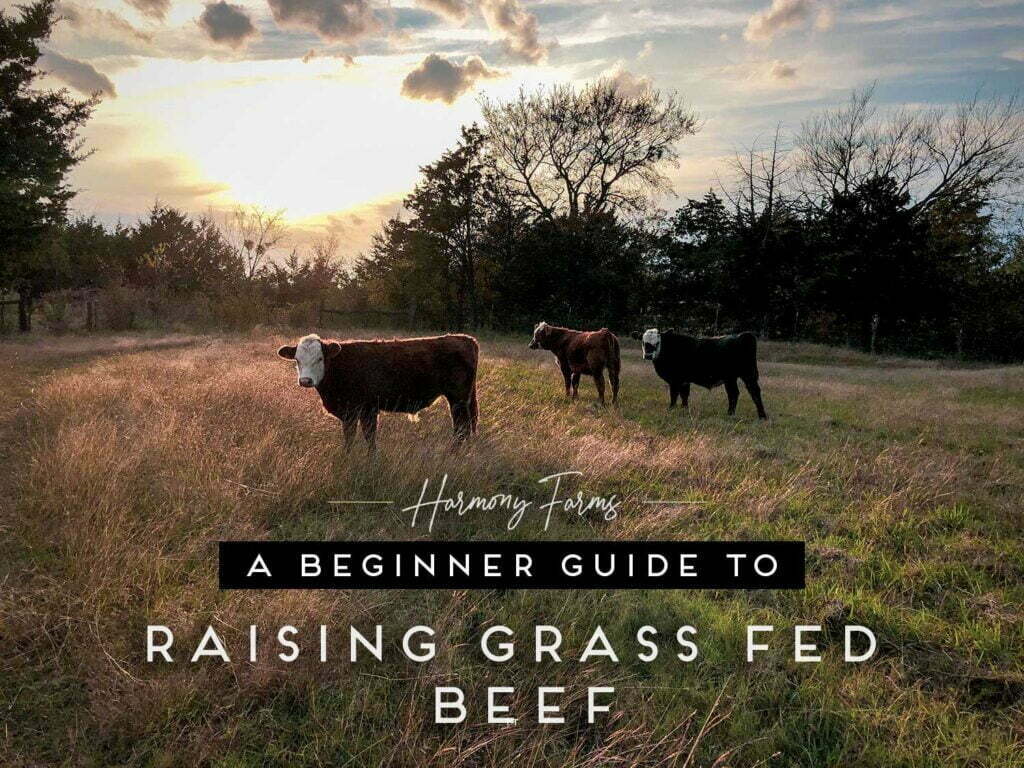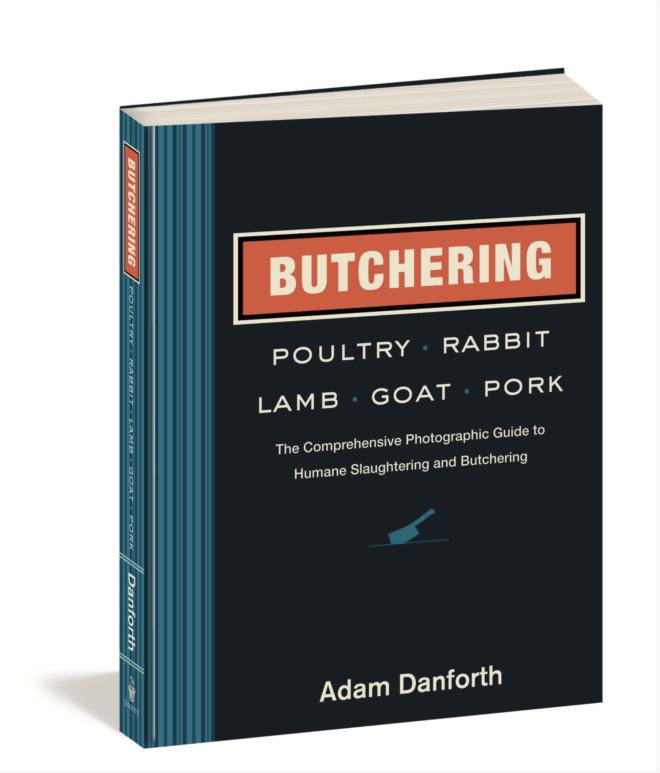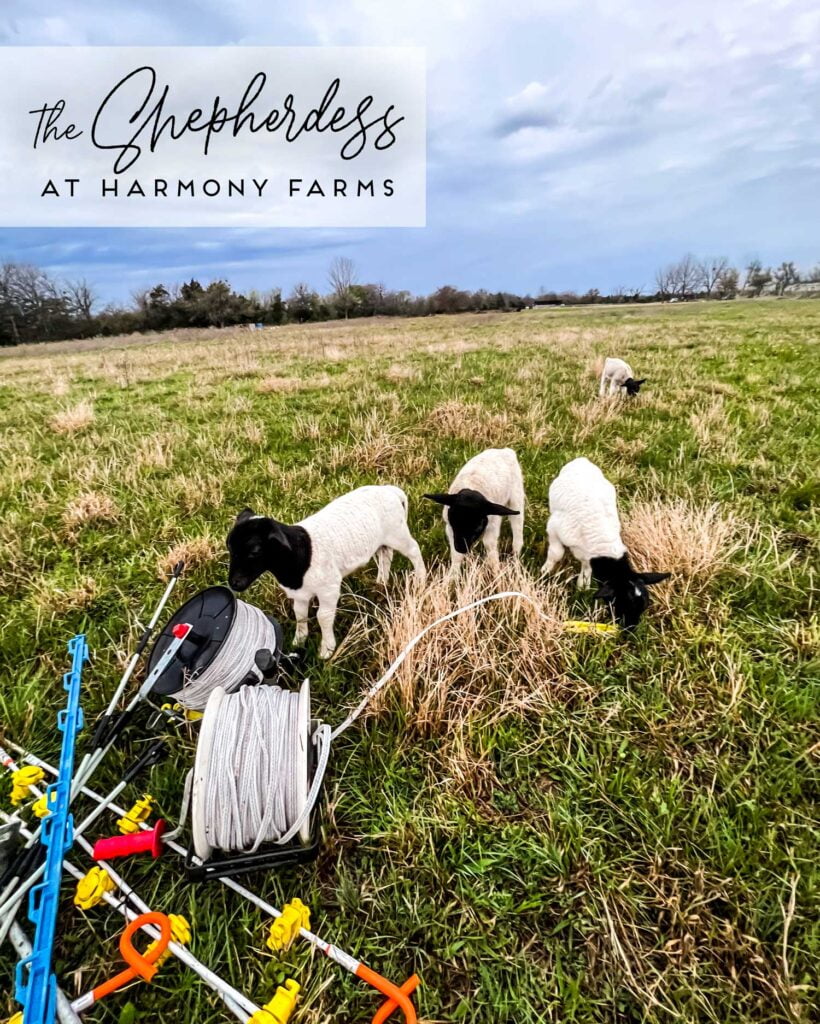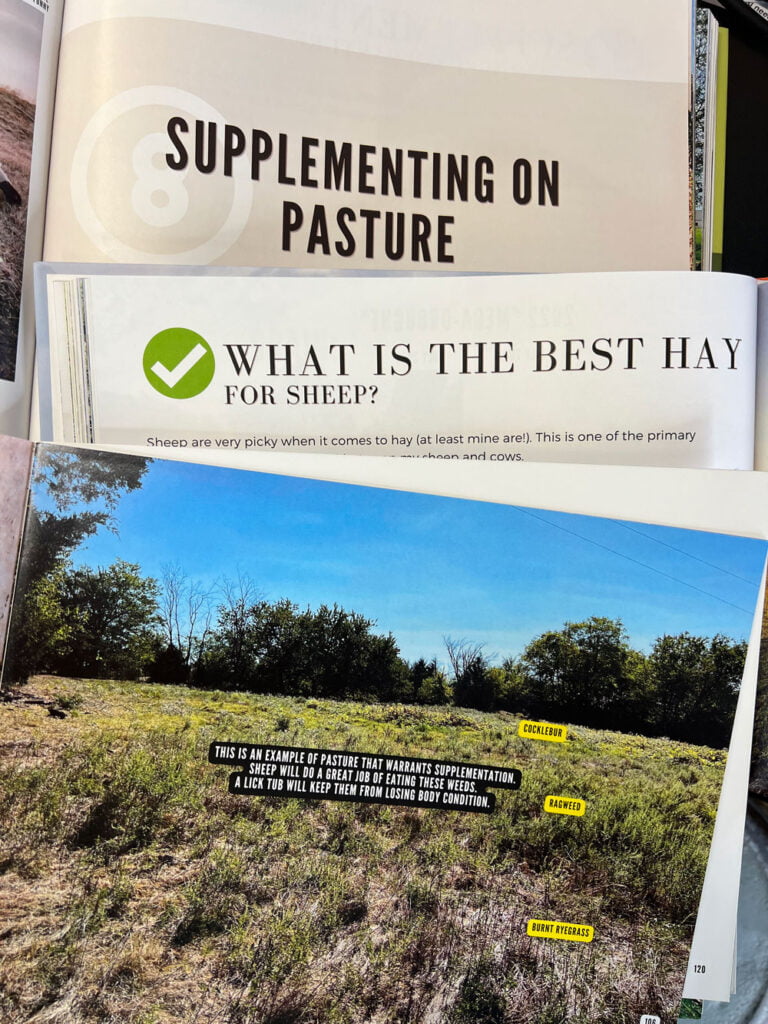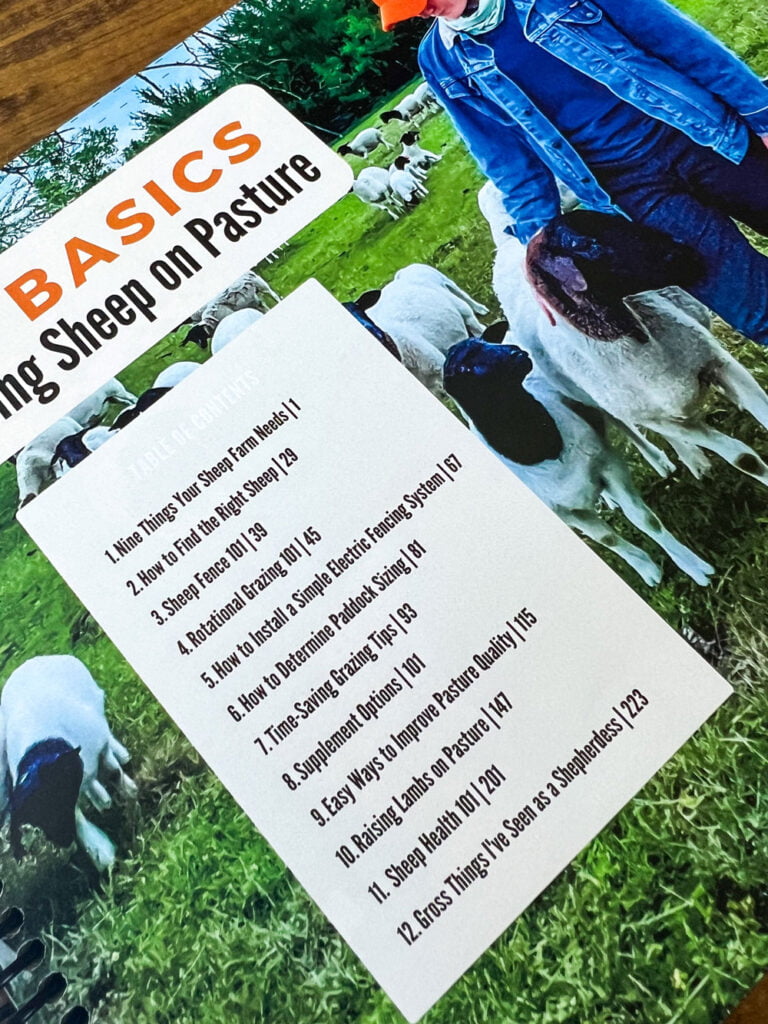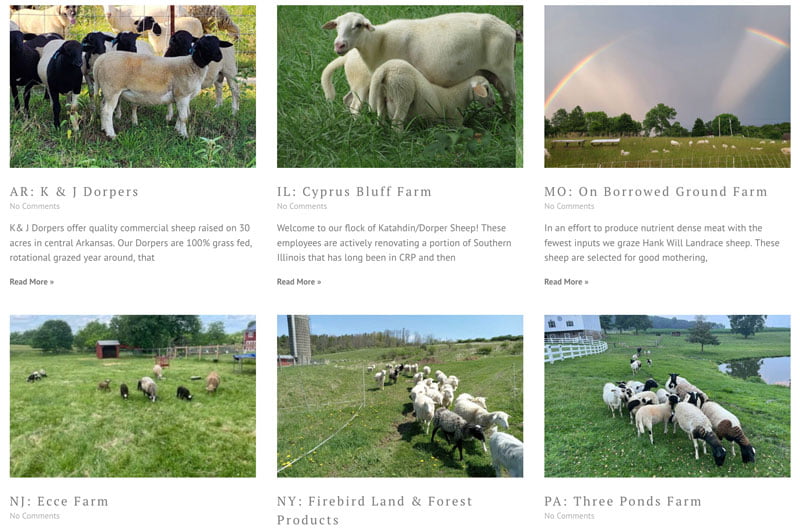Most of you know I raise my sheep on pasture (almost) 24/7 – even in the winter. However I often receive questions from viewers who (either due to climate or small acreage) have to figure out how to feed and raise lambs when pasture is not available.
Today I’m talking with Tim at Linessa Farms who raises sheep in a blended system: 50 percent dry lot and 50 percent rotational grazing. Tim going to provide some answers to your questions: including to affordable feed rations for sheep, minerals for sheep, the best hay for sheep, creep feeding lambs, and more! Enjoy!
Q&A with Tim from Linessa Farms: How to Raise Sheep in a Dry Lot System
Q: Do you graze at all or are you 100% feed supplementing?
Tim: We run a blended system here. During the winter months, from October to May, we use a closed dry lot system. From May until October, we practice traditional rotational grazing. This is common in northern climates.
Q: You mentioned parasites. Are there specific ones that are particularly challenging in a dry lot situation compared to pasture?
Tim: Yes, you need to consider a broad spectrum of parasites, not just the commonly known ones like barber pole worms. In a dry lot, you also have to deal with lice, mange, and the often overlooked coccidia. Cleanliness in your water and bedding is crucial in a dry lot to prevent these issues. If you wouldn’t drink the water, neither should your animals.
Q: Let’s talk about coccidia. What have you found to be the most effective treatment?
Tim: The most effective and safest treatment for coccidia is Toltrazuril, known commercially as Baycox. It’s not FDA-approved in the U.S., so always consult your veterinarian. Unlike Corrid, which can cause vitamin B deficiencies in sheep, Toltrazuril is very effective without such side effects.
Q: How do you detect coccidia? It seems sneakier than other parasites.
Tim: Coccidia often causes unthriftiness, a failure to thrive, and subclinical levels might not show obvious symptoms. Clinical signs include diarrhea or scours. It’s a protozoan parasite that can cause long-term damage to the small intestine. Regular fecal samples are the best way to detect it.
Q: Does using feed in your system cut into your profit margins compared to full-time grazing?
Tim: Absolutely. Any additional costs, like feed or hay, impact your margins. You need to budget and plan for these expenses as they can fluctuate.
Q: What is your feed ration in the dry lot when you don’t have any grass?
Tim: This depends on the breed, but a general guideline is one flake of hay per head per day and about half a pound to one pound of corn per head per day. Adjustments can be made based on the body condition of your livestock. A flake is a segment from a small square bale of hay.
Q: What are the protein requirements for sheep?
Tim: Protein requirements vary by breed. You can use corn, which is about 7% protein, or feeds up to 16% protein. Anything above 16% is usually unnecessary unless you have show animals.
Q: Should you perform regular treatment for coccidia regardless of symptoms?
Tim: There are two main strategies: preventative and treatment. Preventatives like decox, bovetech, and rumensin keep coccidia from growing and are often added to feed. For treatment, Toltrazuril is effective for both preventing and treating coccidia. Regular preventative measures, especially in a dry lot, can be beneficial.
Q: What type of feeder system do you use for your wool sheep?
Tim: We use a creep feeding system, which allows smaller animals to access their feed while keeping adults out. This system ensures that smaller animals get enough feed and helps prevent the bigger animals from dominating the food supply. From birth until weaning, we use a full feed creep system where feed is always available to the young ones.
Brenda asks a good question. Do you supplement additional for better fiber?
Tim: Nutrition is key for good wool. Use a quality free-choice mineral to provide all necessary nutrients. Shampoos are secondary to a good diet.
Let’s talk about minerals just a little bit. This could probably be an entire two hours of its own, but just generally give a little minerals 101. And what do you use at your farm?
Tim: We created our own mineral mix with help from a Purdue University nutritionist. Free-choice loose minerals are better than blocks as they are easier on sheep’s teeth. Ensure a good calcium to phosphorus ratio (2:1) to avoid urinary calculi, especially in males. Avoid all flock minerals and use specific sheep minerals.
Okay. Where can we find your specially blended mineral? Do you sell it?
Tim: Yes, you can find it on the linessafarms.com online store. We even have a no-phosphorus mineral for castrated males.
Alright. Daniel asks: “what about barley? Is it cost-effective versus corn?“
Tim: Barley has higher protein (11-12%) than corn (7%) but is more expensive. I use barley as a supplement, not a staple. Cost-effectiveness depends on your local prices.
Aiden asks, what do you use to stop ticks?
Tim: For wool breeds, wool and lanolin create a natural barrier. For hair sheep, use pour-on insecticides like Silence or permethrin (Ultra Boss). Diatomaceous earth can be an option but has respiratory risks and is less effective when wet.
When you mention “consequences” is it the respiratory risks that you’re thinking of?
Tim: Yes, diatomaceous earth irritates the nose, throat, and lungs. Use it dry and with caution, but chemical treatments are more reliable.
Brenda asks another great question. What type of hay mix? Most alfalfa mixes are going to be 20 percent protein. We and the sheep like rye grass.
Tim: Hay quality varies. A grass mix with some alfalfa is preferable for sheep. Too much alfalfa can be overkill and may cause issues like cud spilling.
Alright, Tamlyn says, I can’t get my lambs to eat from the creep. What do I do?
Tim: Try adding soybean meal to the creep feeder; it’s fine-textured and attractive to lambs. Older lambs will eventually teach younger ones to use the feeder. Adding molasses or sweeteners can also help.
Daniel asks, are you able to get commodity prices on grain where you live?
Tim: Yes, contact local farmers to buy directly and save money. Use containers like 55-gallon barrels or mini bulks for storage. This approach cuts out middlemen and reduces costs.
So you are suggesting going direct to the farmer and essentially finding a way to store in bulk.
Tim: Exactly. Whole corn stores well if kept dry, and buying directly from farmers is cheaper. It benefits both the farmer and you.
Is there any harm in using an existing ram for new flocks?
Tim: It depends on your goals. For genetic diversity, bring in new genetics regularly. Using the same ram is fine for terminal breeds if you’re not keeping offspring.
Alright. Let’s talk about transitioning from dry lot to pasture. Any best practices for that?
Tim: Feed them their usual diet before turning them out to pasture. This prevents gorging and reduces the risk of bloat. Gradually introduce new forage over several days.
Are you still looking to breed out of season?
Tim: Yes, we use an accelerated lambing program and breed year-round. Success depends on your breed; for example, Polypay and Dorset breeds adapt better to out-of-season breeding than Katahdins.
